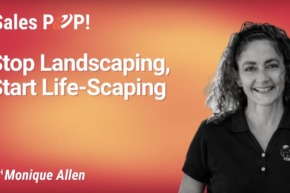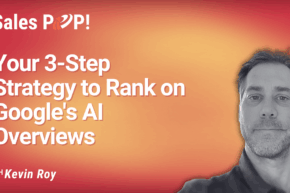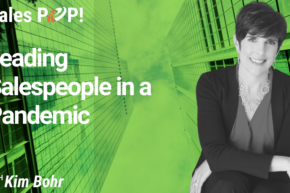In a world defined by constant disruption and AI-driven transformation, the demands on modern leaders have never been greater. The pace of change is accelerating, and the strategies that once led to success are quickly becoming obsolete. In a recent, compelling interview, host John Golden sat down with Dr. John Oberg, a distinguished founder, CEO, advisor, and professor, to explore the essential skills and mindset required to lead in this new era. Dr. Oberg, who has a rich background in scaling organizations and a knack for using powerful analogies from martial arts and sports, provides a practical roadmap for leaders grappling with organizational growth, conflict management, trust-building, and personal resilience.
The discussion went beyond typical business advice, delving into the core of what makes a leader truly effective in times of uncertainty. Dr. Oberg emphasized that leadership isn’t just about making decisions; it’s about building a foundation of trust and psychological safety that allows teams to thrive. He challenged conventional wisdom, asserting that zero conflict is a red flag, not a sign of harmony, and that empathy is the tool that makes difficult conversations possible, not something to be avoided. The discussion also highlighted the critical importance of self-awareness, using the Johari Window model to illustrate how leaders can uncover their blind spots and strengthen their relationships.
A central theme throughout the interview was the idea that what got you here won’t get you there. This powerful insight serves as a wake-up call for leaders who may be relying on outdated methods. Dr. Oberg detailed how to transition from transactional leadership to a more humane, relationship-focused approach, and why this shift is crucial for long-term success. He shared actionable strategies for fostering a culture of lifelong learning, emphasizing that even the most accomplished leaders need coaches and mentors to stay sharp and avoid isolation. The conversation offered a refreshing perspective on resilience, framing it not as an inherent trait but as a skill that can be deliberately practiced through managing stressors and focusing on what’s controllable. This interview provides a comprehensive guide for any leader—from seasoned executives to aspiring managers—who wants to navigate today’s complex landscape with confidence, empathy, and a clear vision.
Key Insights from Dr. John Oberg on Leadership in Times of Change
- Embrace Change as an Opportunity: The maxim, “What got you here won’t get you there,” is a powerful reminder that growth requires adapting your strategies, people, and processes. Leaders must prioritize transparent communication and humane transitions to support their teams through change.
- Build Trust with Short-Term Focus: In times of rapid change, thinking in short, 90-day increments can reduce overwhelm and keep teams aligned. Trust is built through consistent support, especially when team members are facing personal challenges, and by living out core company values.
- Empathy is a Tool for Accountability: Don’t confuse empathy with weakness. It’s the foundation that allows for tough but necessary conversations. By separating a person’s identity from their performance and fostering a blameless learning culture, leaders can give feedback that leads to growth rather than resentment.
- Encourage Healthy Conflict for Innovation: A complete absence of conflict is a sign that people are afraid to speak up. High-performing teams thrive on mutual accountability and honest feedback, where disagreements are seen as opportunities for innovation and better solutions.
- The Best Leaders Have Coaches: No one succeeds alone. Dr. Oberg recommends a reciprocal mentoring network: find three mentors ahead of you and mentor three people who are ten years behind you. This system provides a non-financial support structure that combats isolation and fosters continuous learning.
- Resilience is a Practice, Not a Trait: You can build resilience by deliberately managing stress, focusing on what matters during high-pressure times, and prioritizing social connection. Differentiate between harmful distress and positive “eustress” to stay energized and engaged without burning out.
- Self-Awareness is Non-Negotiable: Use models like the Johari Window to understand your blind spots. Practice selective vulnerability by sharing your limitations with trusted individuals, which builds deeper relationships and fosters trust without compromising your position.
Our Host
John is the Amazon bestselling author of Winning the Battle for Sales: Lessons on Closing Every Deal from the World’s Greatest Military Victories and Social Upheaval: How to Win at Social Selling. A globally acknowledged Sales & Marketing thought leader, speaker, and strategist, he has conducted over 1500 video interviews of thought leaders for Sales POP! online sales magazine & YouTube Channel and for audio podcast channels where Sales POP! is rated in the top 2% of most popular shows out of 3,320,580 podcasts globally, ranked by Listen Score. He is CSMO at Pipeliner CRM. In his spare time, John is an avid Martial Artist.








Comments